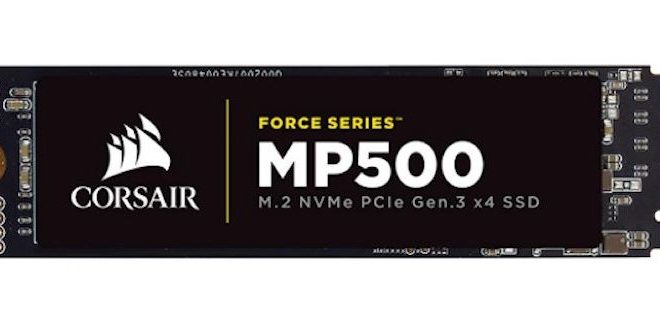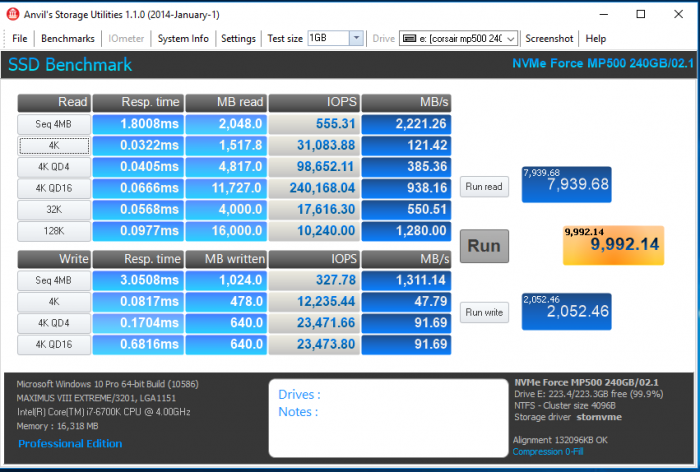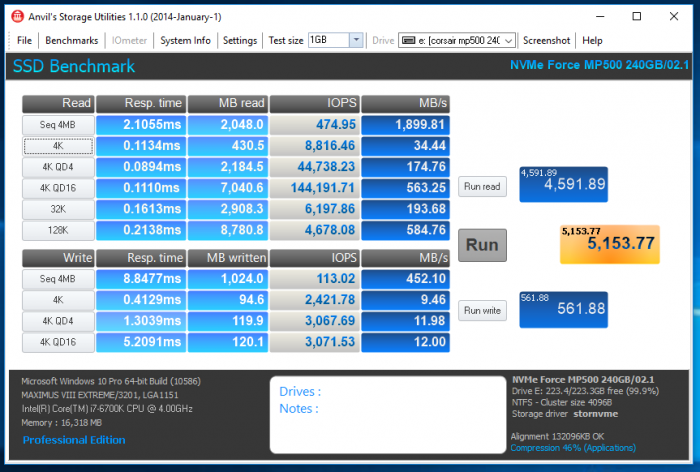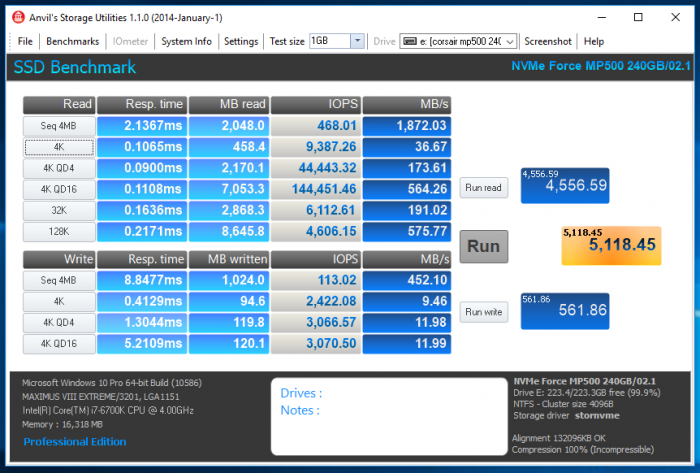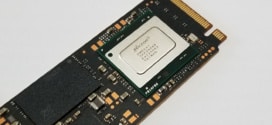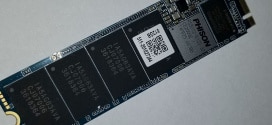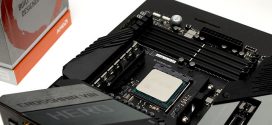Anvil Storage Utilities
Anvil’s Storage Utilities is a powerful tool that was designed in order to provide you with a simple means of assessing the read and write performance of your Solid State Drive or Hard Disk Drive.
The benchmark tool helps you monitor and check the response time of your unit as well as view the system information collected using Windows Management Instrumentation (WMI).
Anvil’s Storage Utilities has been designed to be the most comprehensive benchmark tool for Solid State Drives on the market. That does not mean that you can’t use it for conventional platter-based drives as well, but you do get the most out of the program when you test the speed and performance of SSDs with it. The program has gone through a series of beta and release candidate builds already and is currently available as Release Candidate 3. It is usually linked from this forum thread, which currently is not the case for the RC build which you can download here directly. You can’t use previous builds as they are set to expire automatically.
You can run a benchmark right away by selecting a drive from the menu at the top right or check out the settings first to make sure everything is configured correctly here. Here you can simulate a compression level of the test file, e.g. database, application or uncompressed, and whether you’d like to use the same test file on consecutive runs or generate a new one every time. As far as benchmarks go, you can run a standard SSD benchmark that is testing read, write, or both performances of the drive, or run threaded IO benchmarks only.
0Fill Totally Compressable
Now some people scratch their heads at IOPS, IOPS are simply Input/Output Operations Per Second and by themselves have little meaning. Combine IOPS with measured speed and you get an idea of how many operations per second it took to accomplish the speed. SATA 6gb/s drives typically can run up to 80 – 90k IOPS top end. The Force MP500 is generating 240,168.04 IOPS at the 4K Que Depth 16 test resulting in a speed of 938.16MB/s in a brutal 4K size test. For those not in the know, the technical term for that is Darn Fast.
The Sequential 4MB read test shows us 2.221GB/s while the Sequential 4MB Write test shows 1.311GB/s. The overall score was a 9,992.14 the single highest Anvil score we’ve seen to date!
46% Incompressible (Typical Programs)
Since most programs run a variety of data both compressible and incompressible we run the 46% test in Anvil and yes compressed data does slow the Force MP500 drive down and we got a Seq. Read speed of 1.899GB/s at 474.95 IOPS. Seq Write shows 452.10MB/s at 113.02 IOPS.
100% Incompressible (Video, Images)
Incompressible is typically the hardest on SSD’s of all types except TLC, (Triple Level Cell) SSD’s and the Force MP500 churned out 1.872GB/s sequential read and 452.10MB/s Write. Did we mention ridiculously fast?
 Bjorn3D.com Bjorn3d.com – Satisfying Your Daily Tech Cravings Since 1996
Bjorn3D.com Bjorn3d.com – Satisfying Your Daily Tech Cravings Since 1996
